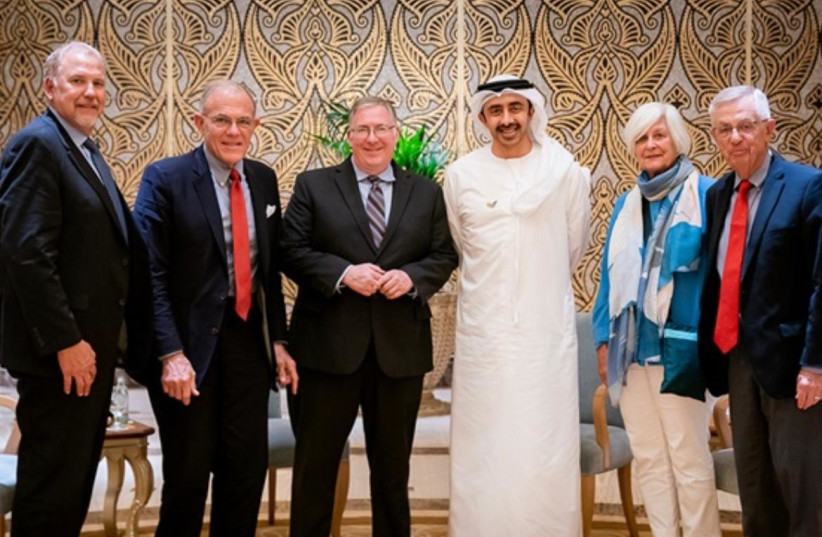Iran is surrounded by insecurity. It is concerned about clashes between Azerbaijan and Armenia, and it is worried about countries in the Gulf that have relations with Israel. Iran looks around the neighborhood and sees insecurity closer to its borders than in the past.
Whereas Iran has tried to spread its influence far and wide, into Lebanon and Yemen, Iraq and Syria, it now sees that while it may dominate its “near abroad,” it can’t control everything.
On Thursday, Iran’s Mohammed Qalibaf, a former Islamic Revolutionary Guard Corps commander turned politician, said in a speech in Bandar Abbas that Iran is facing “insecurity.” At an event commemorating Iran’s victory in the war with Iraq in the 1980s, he gave a speech about Iran’s current challenges and successes.
“We are witnessing insecurity in various regions, such as Southwest Asia, the Caucasus, the Mediterranean coast and part of Africa.” He then said that Iran’s security has nevertheless reached a peak because of the power of the country’s defense forces.
He was speaking at an event commemorating the armed forces. However, the reference to Iran’s difficulties around the region is clear.

Iran has been closely watching developments in the Caucasus. It is also concerned about the role of the US in the Gulf, including US naval forces, and growing connections between Gulf states and Israel, as well as US Central Command and Israel.
Mohammad Bagheri, an IRGC military commander who is now serving as chief of staff for the Armed Forces of Iran, has said Iran is deterring its enemies in the region. However, he also suggested Iran is concerned about conflicts close to its borders. He said that Iran will not tolerate any changes in the borders of countries in the region.
“We advise Azerbaijan and Armenia to solve their problems through dialogue,” he said. Clearly Iran is concerned that conflict between Baku and Yerevan, or Turkey’s involvement in any conflict near Iran’s border.
At the same time, the chief of staff warned Arab countries in the Persian Gulf.
“We expect the Persian Gulf countries to watch out for the mischief of the Zionists,” he said. “The presence of the Zionists in the Persian Gulf is illegal, and we are monitoring all their movements through surveillance and intelligence elites, and if we sense a conspiracy, we will deal with the elements of the regime and their supporters.”
This is part of a rising number of voices in Iran connected to power, including official media, that have been highlighting what Iran says is Israel’s connection to countries in the Gulf.
Iran believes the US is withdrawing from the region, and it wants to fill the vacuum left by the US. What Iran is concerned about is Israel and its new partners in the Gulf growing in power in the coming years. Like Qalibaf, he claimed that Iran’s armed forces are at a peak of their strength. Nevertheless Iran is worried.
“Ominous threats from regional and extra-regional enemies are in the field. With the support of its popular and revolutionary nature, the armed forces have always been and will be a proud presence on the scene of the needs of the country and the system of the Islamic Republic of Iran,” he said.
What additional pressures are mounting in Iran?
Iran is currently facing widespread protests. Infrastructure in the country is breaking down amid natural disasters and economic challenges. This means that the regime is concerned at home and abroad.
After years in which Iran expanded its power – moving weapons to Hezbollah, using drones to threaten US forces in Iraq and Syria, and arming the Houthis in Yemen and Hamas in Gaza – the regime in Iran has analyzed the situation and sees a chance for its victories to turn into reversals.
The two speeches during a day in which Iran is supposed to be celebrating its supposed victory in the 1980s over Iraq illustrate Iran has a cornucopia of concerns.
